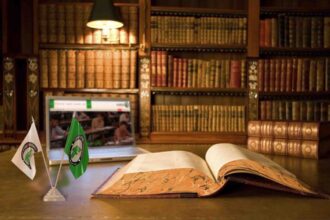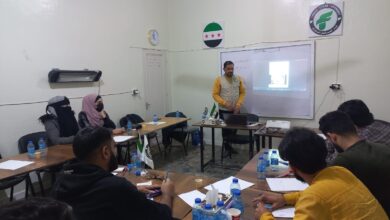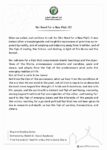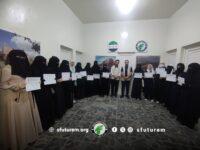Critique of the Syrian Mentality (The Idea of Demolition) as a Model
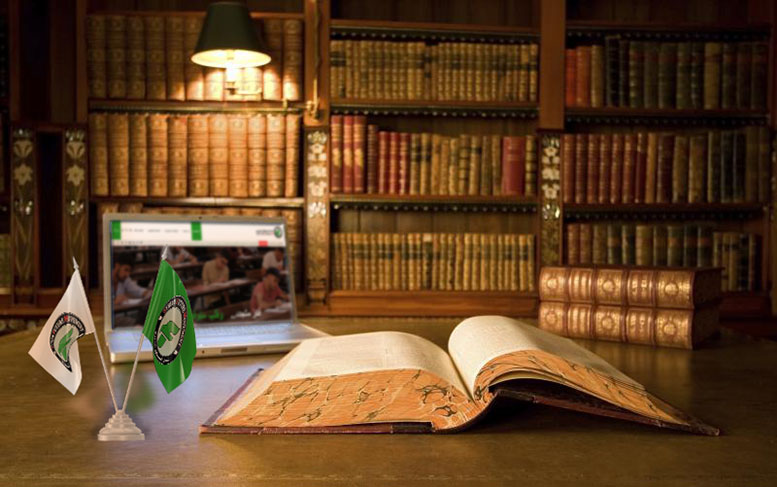
In the 1980s, the Moroccan thinker Mohammed Abed al-Jabri presented a series of intellectual works discussing the critique of the Arab mind. In the first part of his series “The Formation of the Arab Mind,” he attempted to define the concept of the Arab mind and its relationship with Arab culture, considering its formation beginning with the initial interpretation of the Quran, the establishment of language codification, and the foundations of Islamic jurisprudence. In the second part, “The Structure of the Arab Mind,” al-Jabri examined the components of the Arab mind and its evolution, considering the Arab mind to be linguistically impaired and critiqued the sectarian view that divides the Arab nation. In the third and fourth parts, he addressed the Arab political and ethical mind.
Many studies have been built on the foundations of al-Jabri’s project, with George Tarabishi’s efforts being among the most notable, even though philosopher Ahmad Barqawi criticized him for deeply following al-Jabri’s works, which he thought could be sufficiently addressed in just two articles! Indeed, al-Jabri spoke about the documentation era after the first century of the Hijri calendar and considered it the component of Arab culture. The epistemic systems that contributed to shaping the Arab mind include the declarative system represented by Sunni ideology, the demonstrative system founded by Muslim philosophers starting from al-Kindi and al-Farabi, and the mystic system represented by Shia ideology, leading him to consider that the same culture of the Arab mind still prevails in our culture today through the declarative and mystic systems, making us in need of activating the demonstrative system through a new era of documentation, according to his view.
Regardless of the specifics of al-Jabri’s project, its value lies in considering critique a fundamental step towards progress and a key part of the Renaissance project. His critical project aimed to liberate the Arab mind from constraints and sectarianism and encourage free and independent thinking.
In the Syrian case, there is a close connection with al-Jabri’s outputs, considering the Syrian mind as an Arab mind influenced by its knowledge space! However, upon closer examination, it seems there are many issues in need of critique, particularly the Syrian tendency towards the idea of demolition! It is worth noting that the involved party cannot be solely blamed for any demolition that has occurred or is occurring; rather, the responsibility appears to be shared with the party strongly embracing the idea of demolition and perhaps enabling the necessary tools for it.
In 2012, after the peaceful movement in 2011, Syrian voices notably shifted towards demanding the demolition of the Syrian regime, moving from a phase of calling for reforms and presenting practical steps that illustrate this, to a phase of militarily overthrowing it, which resulted in destruction and displacement on one hand, and detentions and bloodshed beyond description on the other.
It must be reaffirmed that the Syrian people alone do not bear responsibility for what happened; rather, the Syrian regime also holds greater responsibility in dragging the people into adopting the decision of demolition and pursuing it, as evidenced by the recent developments in the Sweida movement, which began with reform demands and is now entering a dangerous phase, with bloodshed there elevating calls to overthrow the Syrian regime and demolish it! It is unknown whether the situation will evolve to take up arms, or continue to adhere to the calls for peace by the religious authority in Jabal al-Arab, meaning we are entering a dark tunnel from which we cannot emerge, and thus, there will be no winners!
From 2013, voices shifted towards changing the Free Syrian Army, and with the emergence of Islamic movements, the discourse of demolition became clear through the slogan: “We want neither the Free Army nor the regime army, we want the Islamic army,” resulting in a zero-sum conflict that manifested in the annihilation of dozens of military factions by the Nusra Front, most notably the Syrian Revolutionary Front and the Hazm Movement.
After 2014, we saw the same mentality with the Islamic State organization and the Nusra Front as well.
After the Syrian Democratic Forces took over the eastern regions of Syria, the Syrian opposition raised the need to sever ties with SDF and demolish their project. Just as Hay’at Tahrir al-Sham sought to combat the Syrian opposition in the northwest, and conversely, after the issue of working for the coalition emerged with Hay’at Tahrir al-Sham, popular demonstrations called for the demolition of the Hay’at’s project.
Similarly, with the National Coalition for Syrian Revolutionary and Opposition Forces, which was established in Qatar in 2012, until we reached the phase of calling for its complete overthrow and demolition today!
If we turn our gaze from all this to the activists, elites, thinkers, and currents not aligned with the de facto authorities, we see the persistence of the idea of demolishing those authorities, considering the solution
to start with their removal and crushing them all, as observed through spaces on Twitter, where activists express themselves.
Thus, we face a Syrian mentality colored by the idea of “demolition,” making it the basis for all different Syrian movements.
What confronts this mentality?
Undoubtedly, thought is only contested by thought, and when the foundations of theorization change, interactions with reality change. Therefore, what can be recommended here is the need for elites and thinkers whose task is to delve with a cool mentality, using realistic tools through these determinants:
1- Distance from populist discourse, which seeks to satisfy the desirable outlook among the Syrian public or the popular base.
2- Look towards the future outcomes.
3- Avoid personal biases.
4- Work to establish the national Syrian interest based on the possible real-world conditions, not the interest of specific groups, regions, or clans.
5- Support any good initiative by any de facto authority (e.g., reforming Assad’s intelligence, which is claimed to make it operate in the interest of the citizens, not against them), (reform the economic and security file in Hay’at Tahrir al-Sham currently), (the social contract of SDF), (institutionalization of the National Army factions, and the earnest pursuit of economic development through the recent investment project), (the West Germany scenario and the untouchable land launched by the Syrian American Initiative SAI represented by the Global Justice Syrian American organization and the Arab Democratic Alliance), reform and expansion of the Syrian National Coalition Opposition. Etc.
6- Unify goals towards building a modern national state, which establishes institutional work.
Through these determinants, we will be aligning our biases with strategic and lofty goals at the same time, possibly agreed upon by most Syrians.
We also move away from the idea of demolition, in favor of ideas of building on what exists and commonalities, ensuring that we continually have parallel ideas (working on them with our partners) to narrow the scope of the idea of demolition, which has accompanied our Syrian mentality, such that we exhaust our efforts in building on what is positive, possible, and existing, instead of building from scratch! The most effective solution—as adopted by the Future Syrian Stream—is to reform reality and build upon it, as it appears less costly and more beneficial.
If the Arab mind, according to al-Jabri, is preoccupied with the poetic and emotional declarative discourse, looking at the idea “For us, the chest is without the worlds or the grave,” and preoccupied with the mystic discourse towards an overly idealistic and unrealistic approach, then the demonstrative discourse, which looks at reality and seeks possible non-impossible solutions, allows us to benefit from it in leaving behind the idea of zero demolition, and moving towards building on what exists and reforming it until we reach the stage of building the modern Syrian state.
Jomaa Mohamad Laheep
Scientific Office
Research and Studies Department
Articles
Syrian Future Movement (SFM)
